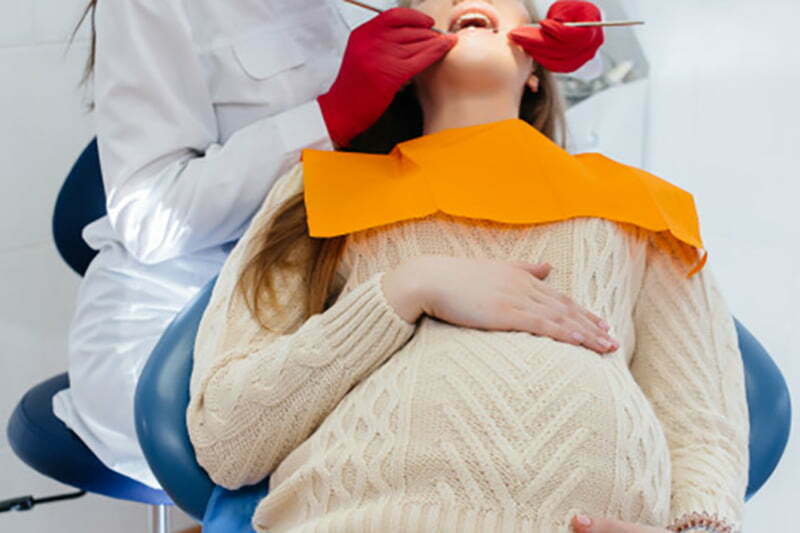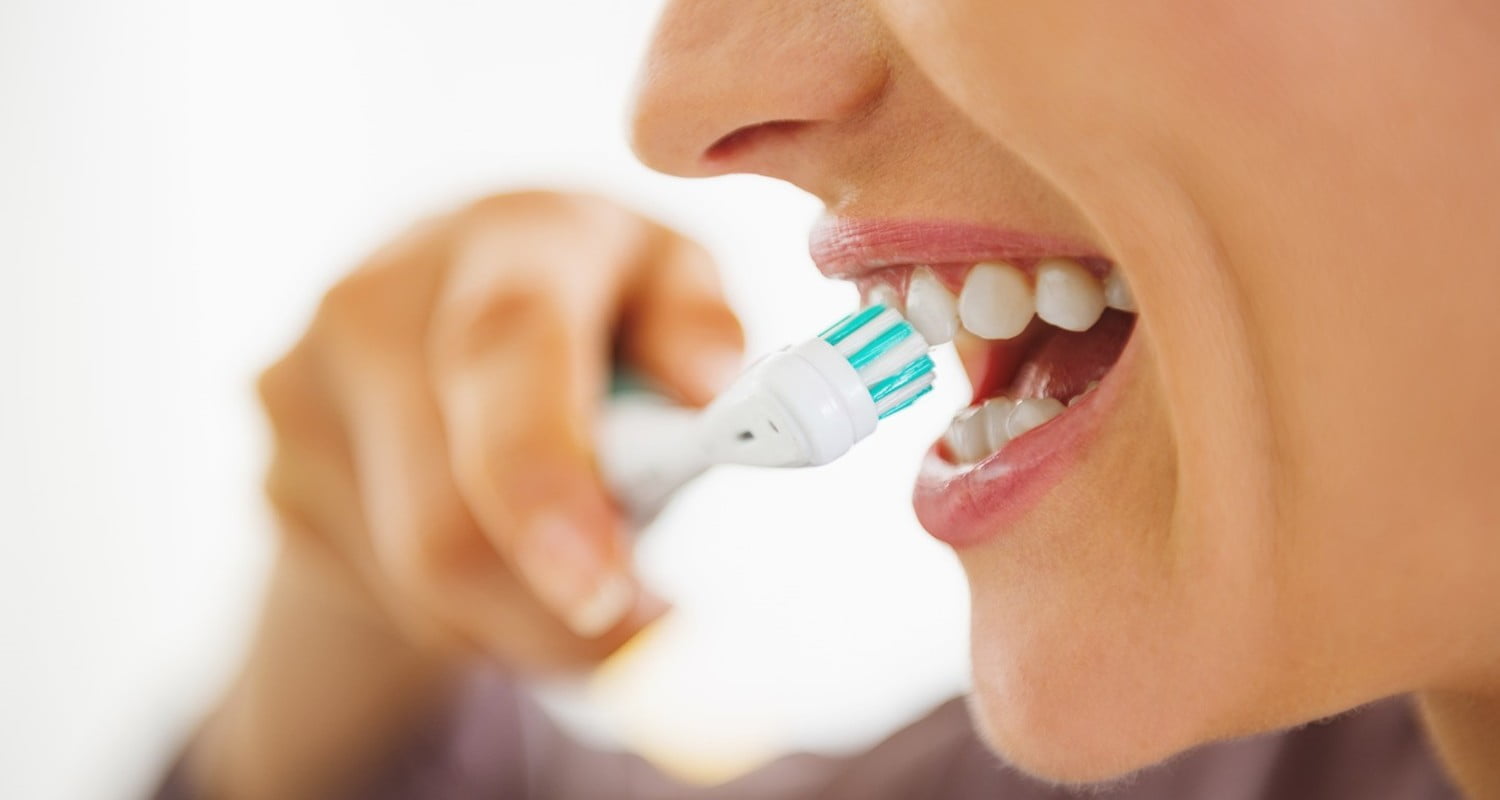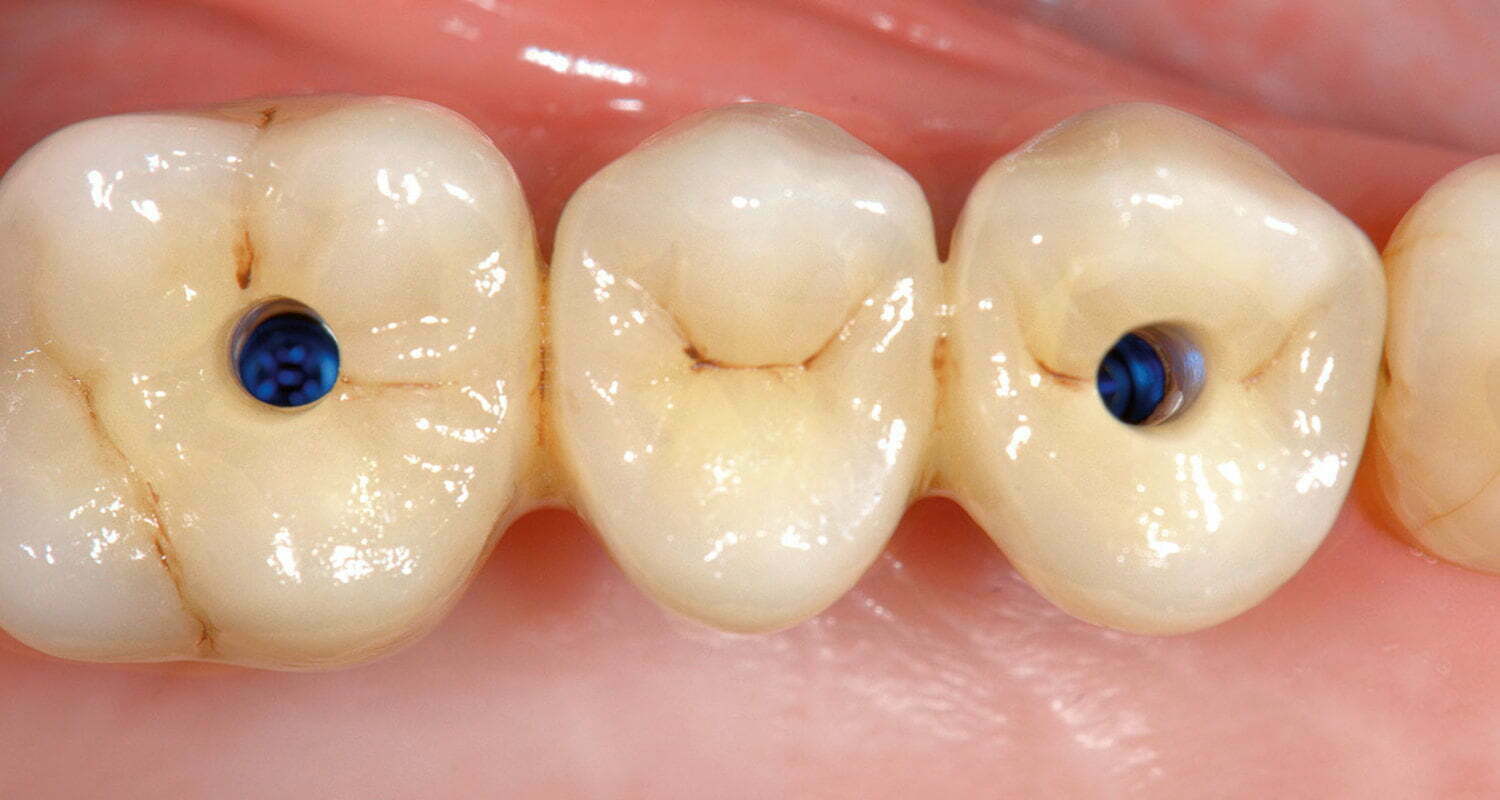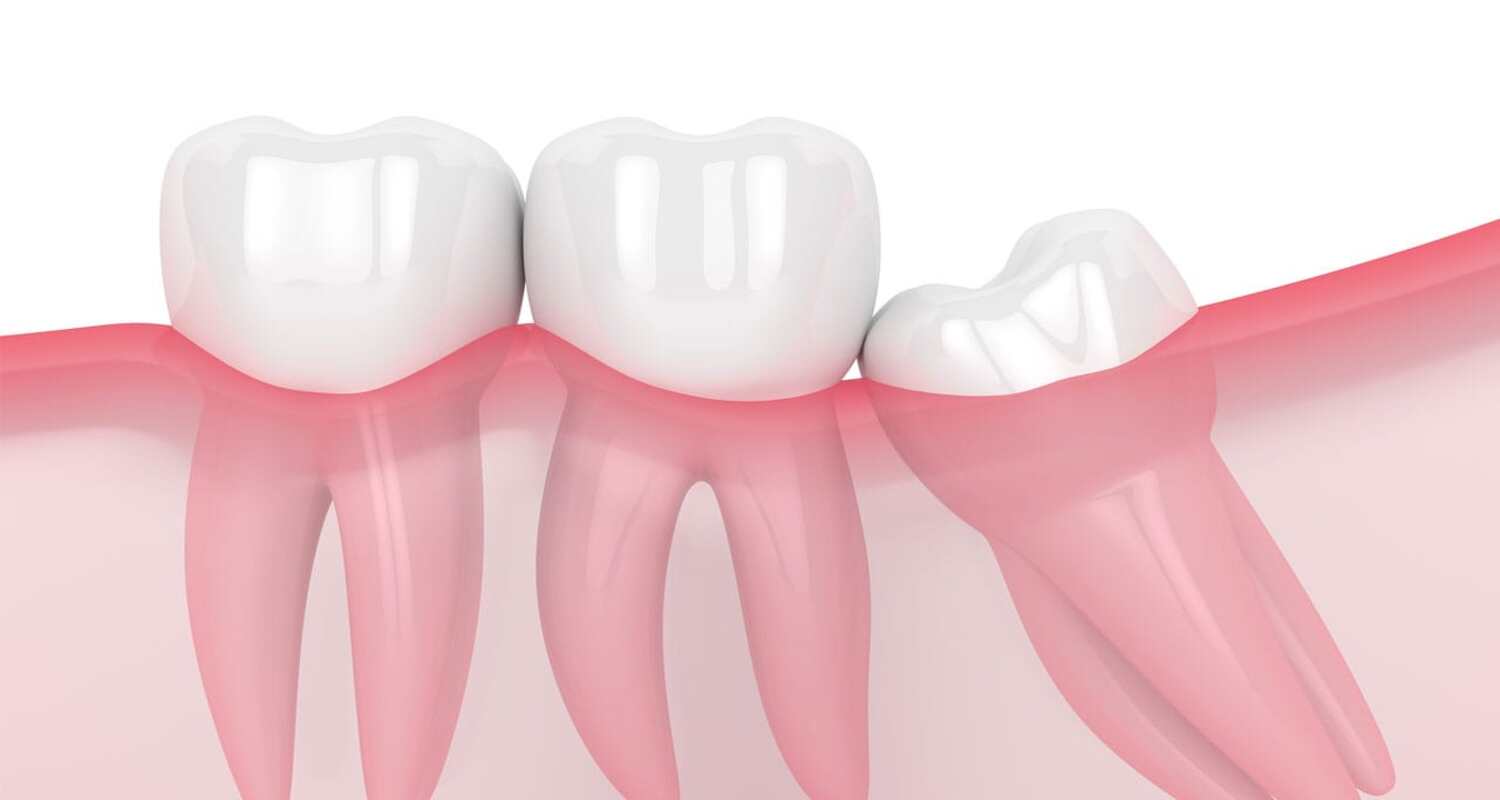Oral and Dental Health during Pregnancy

 Is it true that “one lose a tooth in every birth”? It is wrong to think that during pregnancy, pregnant mothers lose their teeth quickly when the baby gets the required calcium from the mother’s teeth, causing the mother’s teeth to decay quickly. What is the need for calcium during pregnancy? The mother needs 1200-1500 mg of calcium per day to keep the bones of the baby and mother healthy. During pregnancy, women should take calcium-rich foods such as milk and dairy products and green leafy vegetables to meet the calcium requirements. If sufficient calcium is not provided with food, the amount required for the baby's development is defrayed from the mother's bones. No calcium dissolution occurs in the teeth. In terms of oral and dental health, what should be considered in food consumption during the entire pregnancy period? Fruits and vegetables, which are rich in vitamins A, C, D and phosphorus and calcium, should be balanced with grains, milk and dairy products and meat, fish and eggs. In order not to damage the teeth, eating sugary foods should be avoided as much as possible (especially between meals). Avoid adhesive sugared foods such as dried fruit and caramel. Can dental treatment be performed during pregnancy? Effective dental treatment should be avoided in the first three months of pregnancy, during which the baby has an organ development stage. Treatments should be delayed for three months. In emergencies such as dental or gingival inflammation, the premise that the present infection may affect the development of the baby more than the negative effects of dental treatment should be highlighted and dental treatment should be administered according to the recommendations of a gynecologist. In the last three months, the mother may be uncomfortable when performing dental treatments because she is comfortable with the positions required for the treatment and is unable to sit on the couch for a long time. Can dental anesthesia be performed during pregnancy? Can tooth X-ray be taken? - Although it is recommended to not use several medicines or use them under control during pregnancy, no side effects of local anesthetics used in dental treatments have been reported. - Use of local anesthesia should be carried out according to the manufacturer's recommendations. - If there is no warning, there is no harm in using local anesthetics. - The patient will not feel pain and will experience less stress in the treatment under anesthesia. - The use of local anesthetics during pregnancy for tooth extraction or any intervention should be followed by the manufacturer’s recommendations. - If there is no warning, there is no harm in using local anesthetics. The use of antibiotics, especially penicillin and its derivatives (amoxicillin, etc.), is not a problem for the baby. - X-ray imaging should be avoided in pregnant women even though radiation is very low in X-ray machines used in dentistry. - If there is no necessity, this should be postponed until after birth. - If an emergency treatment requires an X-ray: The mother should be dressed in protective apron, quick films should be used with low-dose applications. Pregnancy gingivitis In the early stages of pregnancy, swelling and redness may be observed in gums. The gums in this shape are very sensitive and bleed easily. These changes in the gums of women during pregnancy are caused by increased secretions of estrogen and progesterone hormones. Pregnancy gingivitis usually rises to the highest level in the 8th month of pregnancy and recovers spontaneously after birth. Factors such as bacterial plaques or calculus, which cause irritation of gums and which occur in people who do not regularly perform oral dental care, can make the pregnancy gingivitis situation more serious. If the teeth have deep tartar accumulation, these should be cleaned by the dentist. As with other dental treatments, tartar cleaning should be done especially in the second quarter of pregnancy. I used antibiotics when I was pregnant. Does this affect my baby’s teeth? It is wrong to believe that every antibiotic used causes stains in the baby’s teeth. The antibiotic group that causes coloring in teeth is “tetracycline”. Other antibiotics have not been proven to cause a color change.
Is it true that “one lose a tooth in every birth”? It is wrong to think that during pregnancy, pregnant mothers lose their teeth quickly when the baby gets the required calcium from the mother’s teeth, causing the mother’s teeth to decay quickly. What is the need for calcium during pregnancy? The mother needs 1200-1500 mg of calcium per day to keep the bones of the baby and mother healthy. During pregnancy, women should take calcium-rich foods such as milk and dairy products and green leafy vegetables to meet the calcium requirements. If sufficient calcium is not provided with food, the amount required for the baby's development is defrayed from the mother's bones. No calcium dissolution occurs in the teeth. In terms of oral and dental health, what should be considered in food consumption during the entire pregnancy period? Fruits and vegetables, which are rich in vitamins A, C, D and phosphorus and calcium, should be balanced with grains, milk and dairy products and meat, fish and eggs. In order not to damage the teeth, eating sugary foods should be avoided as much as possible (especially between meals). Avoid adhesive sugared foods such as dried fruit and caramel. Can dental treatment be performed during pregnancy? Effective dental treatment should be avoided in the first three months of pregnancy, during which the baby has an organ development stage. Treatments should be delayed for three months. In emergencies such as dental or gingival inflammation, the premise that the present infection may affect the development of the baby more than the negative effects of dental treatment should be highlighted and dental treatment should be administered according to the recommendations of a gynecologist. In the last three months, the mother may be uncomfortable when performing dental treatments because she is comfortable with the positions required for the treatment and is unable to sit on the couch for a long time. Can dental anesthesia be performed during pregnancy? Can tooth X-ray be taken? - Although it is recommended to not use several medicines or use them under control during pregnancy, no side effects of local anesthetics used in dental treatments have been reported. - Use of local anesthesia should be carried out according to the manufacturer's recommendations. - If there is no warning, there is no harm in using local anesthetics. - The patient will not feel pain and will experience less stress in the treatment under anesthesia. - The use of local anesthetics during pregnancy for tooth extraction or any intervention should be followed by the manufacturer’s recommendations. - If there is no warning, there is no harm in using local anesthetics. The use of antibiotics, especially penicillin and its derivatives (amoxicillin, etc.), is not a problem for the baby. - X-ray imaging should be avoided in pregnant women even though radiation is very low in X-ray machines used in dentistry. - If there is no necessity, this should be postponed until after birth. - If an emergency treatment requires an X-ray: The mother should be dressed in protective apron, quick films should be used with low-dose applications. Pregnancy gingivitis In the early stages of pregnancy, swelling and redness may be observed in gums. The gums in this shape are very sensitive and bleed easily. These changes in the gums of women during pregnancy are caused by increased secretions of estrogen and progesterone hormones. Pregnancy gingivitis usually rises to the highest level in the 8th month of pregnancy and recovers spontaneously after birth. Factors such as bacterial plaques or calculus, which cause irritation of gums and which occur in people who do not regularly perform oral dental care, can make the pregnancy gingivitis situation more serious. If the teeth have deep tartar accumulation, these should be cleaned by the dentist. As with other dental treatments, tartar cleaning should be done especially in the second quarter of pregnancy. I used antibiotics when I was pregnant. Does this affect my baby’s teeth? It is wrong to believe that every antibiotic used causes stains in the baby’s teeth. The antibiotic group that causes coloring in teeth is “tetracycline”. Other antibiotics have not been proven to cause a color change. 






